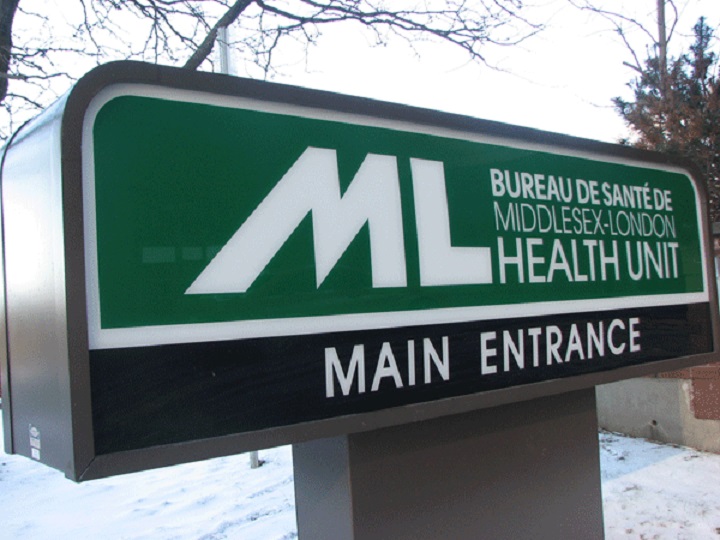Ontario’s Middlesex London Health Unit reported two new confirmed COVID-19 cases on Saturday, bringing the total number of cases in the region to 25.

The new cases are both men, one in his 50s and another in his 60s. At this time, health officials are unsure how either of then men contracted the virus.
These cases are included in the 151 new confirmed cases reported in the province on Saturday.

On Friday, two cases were reported: a male in his 20s who contracted the virus through travel, and a woman in her 30s for whom the transmission source is unknown.
Two cases were confirmed in the region on Thursday, one involving a hospitalized man in his 20s who contracted the illness through undetermined means, and a woman in her 30s who became infected during a recent trip to the U.S.

Get weekly health news
Five local cases were also confirmed on Wednesday:
- a man in his 30s who got infected through close contact,
- a woman in her 60s whose cause is unclear,
- a woman in her 70s who travelled to Portugal,
- a woman in her 70s who came back from the Philippines, and
- a woman in her 80s who contracted the virus through close contact and is in hospital.
Ontario has confirmed at least 1,118 COVID-19 cases as of mid-morning Saturday. Of those cases, eight have been resolved.
At least 18 people have died from COVID-19 in the province. Three of the deaths were reported on Friday, including two at a nursing home in Bobcaygeon, Ont., where an outbreak has also left at least 14 staff infected.
Just under 9,000 people are currently under investigation for the virus in Ontario with over 33,000 people testing negative.
Nationally, there are at least 4,743 cases as of Saturday morning and a total of 55 deaths.
Questions about COVID-19? Here are some things you need to know:
Health officials caution against all international travel. Returning travellers are legally obligated to self-isolate for 14 days, beginning March 26, in case they develop symptoms and to prevent spreading the virus to others. Some provinces and territories have also implemented additional recommendations or enforcement measures to ensure those returning to the area self-isolate.
Symptoms can include fever, cough and difficulty breathing — very similar to a cold or flu. Some people can develop a more severe illness. People most at risk of this include older adults and people with severe chronic medical conditions like heart, lung or kidney disease. If you develop symptoms, contact public health authorities.
To prevent the virus from spreading, experts recommend frequent handwashing and coughing into your sleeve. They also recommend minimizing contact with others, staying home as much as possible and maintaining a distance of two metres from other people if you go out.
For full COVID-19 coverage from Global News, click here.
With Files from Matthew Trevithick Global News
















Comments